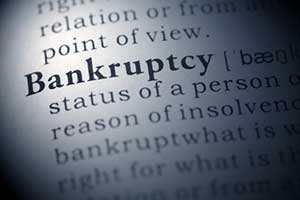 Chapter 7 bankruptcy is the most common form of bankruptcy in the United States. Chapter 7 allows individuals, married couples and some businesses to free themselves from unsecured debt and make a fresh financial start. However, Chapter 7 bankruptcy isn’t available to everyone.
Chapter 7 bankruptcy is the most common form of bankruptcy in the United States. Chapter 7 allows individuals, married couples and some businesses to free themselves from unsecured debt and make a fresh financial start. However, Chapter 7 bankruptcy isn’t available to everyone.
The Benefits of Chapter 7 Bankruptcy
In a Chapter 7 bankruptcy case, most unsecured debts can be discharged, eliminating the legal obligation to pay them. There are some exceptions, such as most student loans, child support, and some tax debt. However, debts like past-due rent, most civil judgments, deficiency balances after foreclosure, credit card debt and medical bills are generally dischargeable.
Automatic Stay in Bankruptcy
In most bankruptcy cases, an automatic stay is entered immediately upon filing. This stay is one of the most powerful advantages bankruptcy offers, as it has the power to stop most collection action immediately. That includes collection calls, threatening letters, repossession, mortgage foreclosure, lawsuits and even wage garnishment. With few exceptions, a creditor who wants to continue with collection action while the bankruptcy case is pending has to make a motion for relief from the automatic stay and get the court’s permission to move forward.
Bankruptcy Discharge Injunction
The protection of the bankruptcy court doesn’t end when the discharge is entered and the case closed. When a debt has been discharged in bankruptcy, a court order prohibits the creditor from continuing to pursue collection. A creditor or debt collector who violates that order and reinstitutes collection procedures such as telephone calls, debt collection letters or filing suit can be sanctioned by the bankruptcy court.
Qualifying for Chapter 7 Bankruptcy
 Chapter 7 bankruptcy is designed to help those who are truly in financial trouble and need to wipe the slate clean in order to fully participate in the economy. Since 2005, consumer Chapter 7 filers must qualify under the Chapter 7 means test. The means test is designed to assess debts and income and make a determination as to whether the person or couple truly needs the relief that bankruptcy brings.
Chapter 7 bankruptcy is designed to help those who are truly in financial trouble and need to wipe the slate clean in order to fully participate in the economy. Since 2005, consumer Chapter 7 filers must qualify under the Chapter 7 means test. The means test is designed to assess debts and income and make a determination as to whether the person or couple truly needs the relief that bankruptcy brings.
One of our experienced bankruptcy attorneys can walk you through the means test and assess whether or not you are likely to be eligible for Chapter 7. This brief overview will provide you with a general idea as to whether you might qualify:
The first step is to compare your income with the median income for a comparable household in your state. Generally, those whose income falls below the median are able to file for Chapter 7 without further calculation.
If your income is above the median, that doesn’t necessarily mean you won’t qualify. Next, allowable expenses are deducted from monthly income to determine whether you qualify, may qualify with further analysis, or will have to file under Chapter 13.
Chapter 7 Bankruptcy Cases
Depending on the specifics of the case, a Chapter 7 case can often be completed in 4-5 months. Though there may be some variations depending upon the nature of your debts and the actions of your creditors, here’s a general overview as to what you can expect in a successful Chapter 7 bankruptcy:
- Your attorney will review your debts, asset and income with you and determine whether you are likely to qualify for Chapter 7 bankruptcy, and whether you would have assets at risk if you were to file under Chapter 7;
- If you and your attorney decide to proceed with bankruptcy, you will be required to complete credit counseling before filing;
- You will provide payroll, tax, debt and other financial information to your attorney, who will prepare the petition and schedules for your review;
- You will review and approve the paperwork for filing;
- In most cases, the automatic stay will go into effect as soon as the petition is filed;
- Your attorney will serve notice of the filing on your creditors;
- Creditors will have an opportunity to question you at the “341 meeting,” though most do not take advantage of that opportunity;
- There will be a waiting period in which creditors can file proofs of claim and certain motions;
- You will be required to complete a financial education course before discharge; and
- The discharge will be entered and the case closed.
Contact KPPB LAW Today For More Information
Finding the right Chapter 7 attorney matters. Although many people are under the impression that filing bankruptcy is a simple matter of filling out forms and it can be handled without an attorney or by any attorney. In truth, there’s much more to bankruptcy and filling in blanks, and simple mistakes can be very expensive. Statistically, bankruptcy petitions filed by pro se debtors are more than seven times as likely to be dismissed without discharge than those filed by bankruptcy attorneys.
Our attorneys have the necessary experience to help you get the full value of a Chapter 7 bankruptcy filing. Don’t cut corners or take chances when it comes to building a better financial life. Contact KPPB LAW by giving us a call or sending us a message online today to discuss your options.
